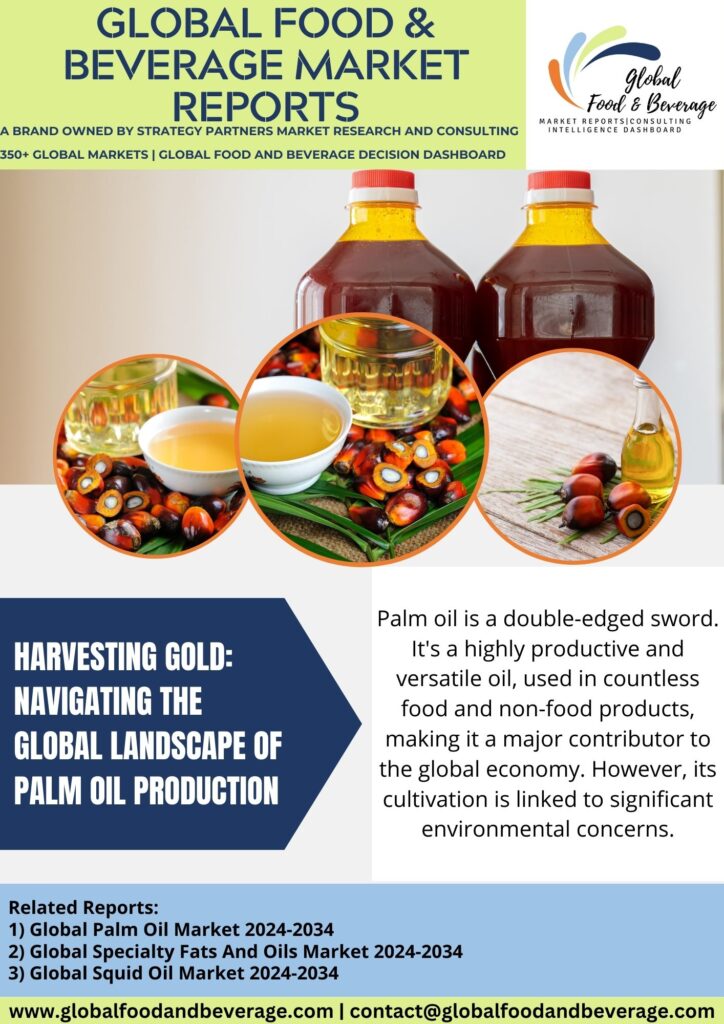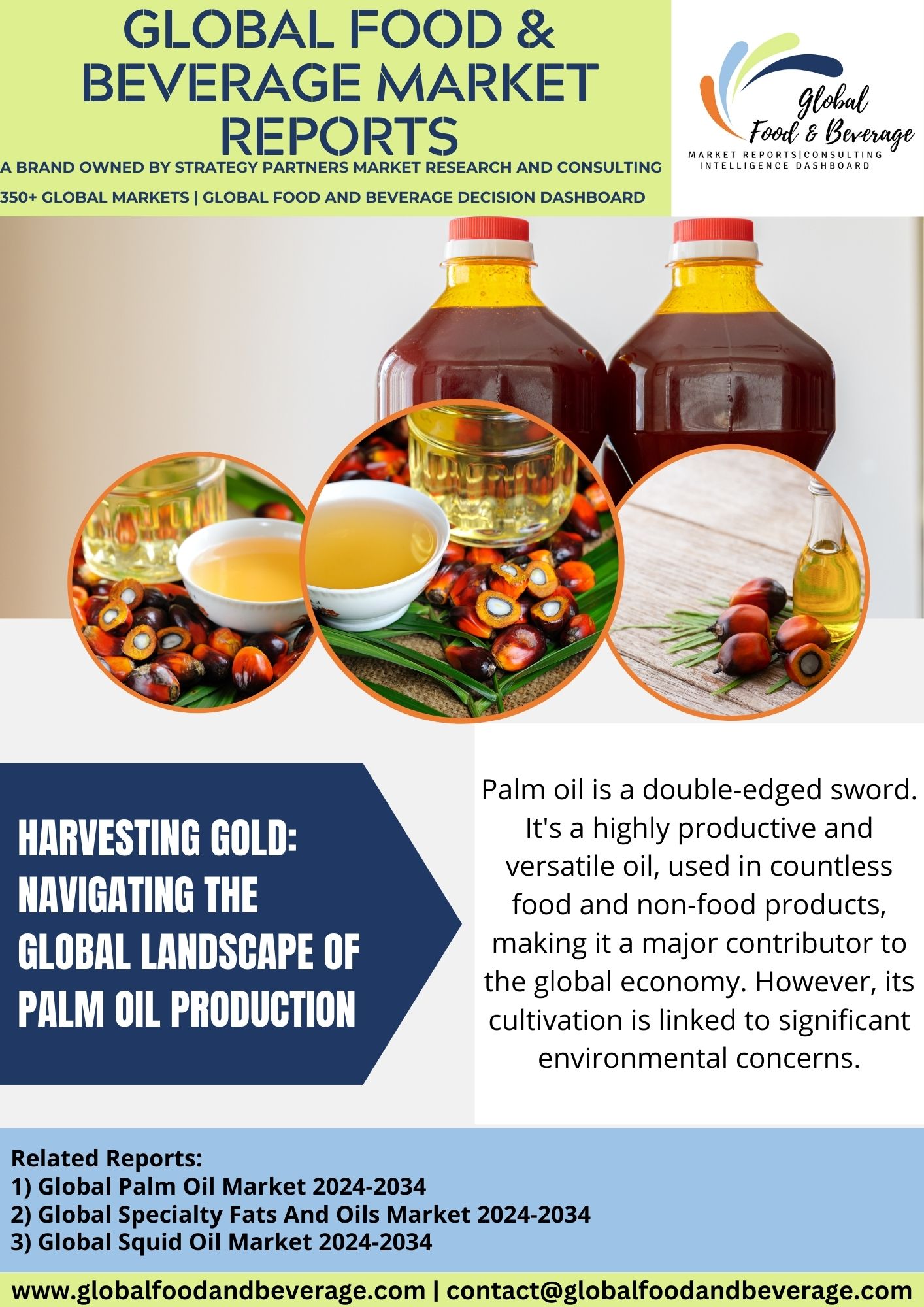Harvesting Gold: Navigating the Global Landscape of Palm Oil Production

Forget coconut bliss and beachy cocktails; palm oil whispers a different story, one etched in global trade, environmental challenges, and complex narratives. It’s not just a cooking staple; it’s a ubiquitous ingredient, lurking in everything from soap to shampoo, cookies to biofuels. Palm oil dances a complex tango between economic boon and environmental concern, leaving some wondering – friend or foe?
Imagine a golden river flowing through sprawling plantations, the lifeblood of countless industries. Palm oil boasts unparalleled efficiency, yielding more oil per hectare than any other vegetable source. It fuels economies, empowers farmers, and offers affordable sustenance to millions. From Malaysia’s verdant fields to Indonesia’s bustling trade hubs, palm oil’s economic footprint is undeniable.
But this golden river carries shadows. Deforestation whispers tales of lost rainforests, displaced ecosystems, and endangered species clinging to vanishing habitats. Palm oil’s expansion often clashes with biodiversity, leaving scars on once-lush landscapes. The smoke of burning forests hangs heavy, a stark reminder of the environmental cost of progress.
And the complexity deepens. Palm oil offers a powerful tool for poverty alleviation, particularly for smallholder farmers who depend on its cultivation. Sustainable practices, when embraced, can mitigate environmental harm while still empowering communities. The path forward isn’t black and white, but a tangled web of responsible sourcing, ethical land management, and a genuine commitment to protecting vital ecosystems.
So, ditch the simplistic labels and embrace the nuance. Palm oil isn’t a singular foe, but a complex actor in the global stage. We must engage in informed dialogue, demand transparency from producers, and support sustainable practices that can reconcile economic needs with environmental responsibility.
The future of palm oil lies in a delicate dance – a tango between progress and prudence. By holding producers accountable, empowering communities, and investing in sustainable solutions, we can transform this golden river into a force for good, nourishing both economies and ecosystems for generations to come.
Remember, palm oil’s story is still being written. We, as consumers, hold the power to influence its trajectory. Let’s choose wisely, demand transparency, and ensure that this ubiquitous ingredient contributes not just to prosperity, but also to a healthier, more sustainable planet for all.
ADVANCEMENT:
In recent years, the palm oil industry has witnessed significant advancements on a global scale, transforming both production and sustainability practices. Technological innovations have played a pivotal role in enhancing efficiency and minimizing environmental impact. Precision agriculture, for instance, has enabled more accurate monitoring and management of plantations, optimizing resource utilization and reducing waste.
The adoption of sustainable practices has become a focal point, with a growing awareness of the environmental and social implications of palm oil production. Initiatives such as the Roundtable on Sustainable Palm Oil (RSPO) have gained traction, encouraging responsible sourcing and production methods. These efforts aim to address deforestation concerns, biodiversity preservation, and the welfare of local communities.
Moreover, research and development have led to the creation of high-yielding and disease-resistant palm oil varieties, bolstering productivity while minimizing the need for agrochemicals. Biotechnological interventions, including genetic modifications, have shown promise in enhancing traits such as oil content and resistance to pests.
Overall, the palm oil industry’s advancements reflect a concerted effort to balance the demand for this versatile commodity with the imperative of sustainable and ethical practices, marking a crucial evolution in the global palm oil landscape.
CHALLENGES:
The global palm oil industry faces multifaceted challenges encompassing environmental, social, and economic dimensions. One prominent challenge is deforestation associated with palm oil cultivation. The expansion of oil palm plantations often involves clearing large areas of tropical forests, contributing to biodiversity loss, habitat destruction, and greenhouse gas emissions.
Social issues, particularly related to land rights and labor practices, present significant challenges. Land conflicts and disputes over indigenous and local community rights have raised concerns about ethical and sustainable palm oil production. Ensuring fair labor practices and addressing issues like forced labor and child labor are ongoing challenges within the industry.
Economic sustainability is a critical concern. Fluctuations in palm oil prices, affected by factors such as global demand, weather conditions, and geopolitical events, impact the economic viability of palm oil production for farmers and the industry at large.
The industry also faces scrutiny regarding its environmental impact, including water pollution and soil degradation resulting from agricultural practices. Adopting more sustainable farming methods and mitigating environmental degradation are pressing challenges for the palm oil sector.
In summary, challenges in deforestation, social issues, economic sustainability, and environmental impact collectively shape the landscape of the global palm oil industry. Addressing these challenges requires collaborative efforts across stakeholders, including producers, governments, and consumer markets, to promote sustainable and responsible palm oil practices.
CONCLUSION:
Palm oil’s shedding its villain cape for a superhero suit! Eco-certifications shield rainforests, fair trade sweetens the deal, and scientists craft healthy varieties. Green refineries shrink the footprint, while flavor infusions ignite taste buds. Beyond frying, bioplastics and fuels bloom, empowering communities and reducing fossil fuels. Remember, it’s not just oil – it’s a choice. Choose wisely, choose sustainably, and savor the future of palm oil, one delicious, responsible bite at a time. Embrace progress, nourish your body, and protect the planet, one palm oil-powered step at a time.
